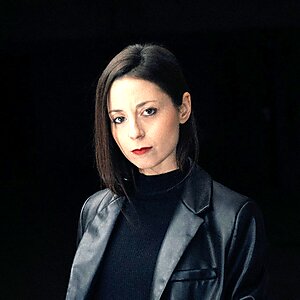PanSTARRS
country: Egypt, UK
genre: Electronic
styles: Industrial, Dance
ABOUT THIS ARTIST
Delving into the recent past in order to revisit forward-thinking projects that, owing to the social, musical or outright political climate, struggled to find an audience, Lost Futures returns with a record from Cairo based project, PanSTARRS. An assured and intriguing blend of post-punk and electronics, ‘Ghaby Ghaby Ghaby’ is the confident and personal work of Youssef Abouzeid, a fixture within Egypt’s unique underground music scene.
“At the time, I was actively occupied by arguments on the fusion of culture in creative context, specifically between western and arabic elements.” recalls PanSTARRS founder, Youssef Abouzeid. "The goal was to find a point of natural expression within Arabic songwriting that meets electronic guitar music, and put out something seriously inspired by both and easy on my ear."
By far the heaviest release from the PanSTARRS project at the time, ‘Ghaby Ghaby Ghaby’ immediately establishes a superior sense of rhythm. ‘Khally Balak Hatmoot’ practises instant hypnosis, Abouzeid’s earnest vocals beckoning outsiders forward over a layer of feedback occupied by a ghostly shift, one which breaks to release a crescendo of post-punk guitar. This sense of subtle drama continues on ‘Men Gheir Wa7da’, demonstrating a skill for songwriting that recalls the uncompromising approach of The Birthday Party or Lydia Lunch.
‘Tortit Naml’ is driven by skittish, rapid-fire drums and tense guitars, either subverting or confirming it’s subtly anthemic status with a dramatic explosion of feedback. ‘Sala Ya Khaifa’ brings respite, a mellow and earnest slow-burner, the bubbling spoils of the PanSTARRS studio providing a wistful texture drenched in reverb. Finally, ‘70mar 3ala 7osan’ sees Abouzeid give his voice over to those same machines, burying his barbed perspective in contrary analogue bliss.
Half a decade later, Abouzeid’s optimism and experimentation are certain to resonate on a scale beyond that of Cairo’s defiant underground music scene.
“Working on everything myself, I enjoyed total creative freedom and kept an organic flow of dirt and error, which was key on this record”, recalls Abouzeid. “Sometimes vocals were recorded as lyrics came spontaneously, sometimes written on paper and then recorded on first takes, but I always prioritized the moment while keeping the perspective in check.”
Releases
Similar Artists and Bands








